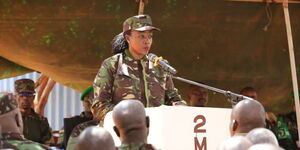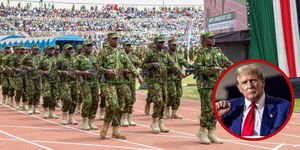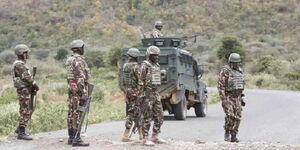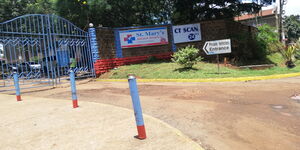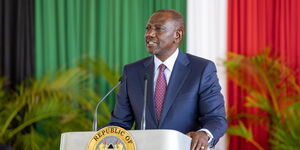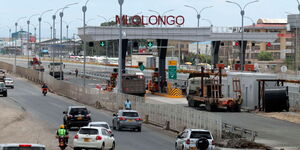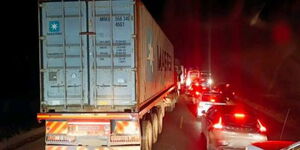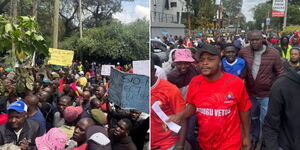Good morning and welcome to our LIVE coverage of journalist protests.
Journalists across Kenya are uniting today, raising their voices against the rising tide of brutality and repression faced by members of the press.
These demonstrations, featuring both local and international media representatives, are a direct response to recent violent attacks on journalists during the coverage of anti-finance bill protests, which have escalated into broader anti-government demonstrations.
The media worker’s protests echo the timeless words of Walter Lippmann, who proclaimed, “A free press is not a privilege but an organic necessity in a great society,” and former US President Thomas Jefferson’s declaration, “Our liberty depends on the freedom of the press, and that cannot be limited without being lost.”
These principles point to the essential role of journalism in a democratic society, and today’s protests demand an end to violence, victimisation, and censorship against the press.
12:00pm - Wetangula to Personally Resolve Media Access Row
National Assembly Speaker Moses Wetangula has pledged to personally address the issues raised by journalists concerning their access to Parliament. This announcement follows growing dissatisfaction among the media, who have demanded that the Parliament Clerk address their petition.
The dispute erupted after some journalists reported being denied access to Parliament since the protests against the finance bill on June 26, which saw the building invaded. Rumours had swirled that the Parliamentary Service Commission (PSC) might be considering banning certain journalists from covering parliamentary proceedings due to their coverage of the bicameral house.
In a recent meeting with the Media Council of Kenya, the Kenya Union of Journalists (KUJ), and the Kenya Parliamentary Journalists Association, Speaker Wetangula assured that no journalist had been barred from entry. Despite these assurances, Citizen TV journalist Seth Orare challenged the Clerk directly, questioning the inconsistency of Parliament's support for the media while experiencing restrictions.
“What you guys do is critical, we will not restrict the access of media to parliament,” the clerk responded.
KUJ Secretary General Eric Odour firmly demanded unrestricted access to journalists, stressing, "What you do is critical. We will not accept any restrictions on media access to Parliament."
Wajir South MP Mohammed Adoh, a former media practitioner joined the journalists in demanding for journalists to be allowed back to Parliament. "We must have media back to Parliament," demanded Adoh.
11:45am - Deputy Spokesperson Dismisses Claims of Police Harassment of Journalists
Mwanaisha Chidzuga, Kenya’s Deputy Government Spokesperson, has sparked controversy with her dismissal of allegations that police are intentionally harassing journalists.
Speaking on Wednesday, Chidzuga contended that reports of assault and victimisation are unfounded. "I don’t think the police are intentionally harassing or attacking journalists,” she asserted. Chidzuga further emphasised that journalists must ensure their safety by staying in secure areas during protests and positioning themselves alongside security personnel.
This statement comes amid growing concerns over the treatment of media professionals covering unrest in the country.
11:30am - Journalists Demand End to Threats from the Communications Authority
The Kenya Union of Journalists has delivered their petition to Police Spokesperson Resila Atieno Onyango, demanding urgent action over recent abuses against journalists.
The petition, intended for Acting Inspector General of Police, Japhet Kanja, calls for:
- Accountability for illegal shootings, beatings, abductions, and harassment of journalists, with details widely known.
- Prosecution of rogue officers implicated in crimes against journalists and innocent protesters.
- Guarantees of safety for all journalists amid escalating threats from state organs and officers.
- Cessation of veiled threats from the Communications Authority and other state bodies that endanger media freedom.
- Immediate gazettement of all Media Complaints Commission members and a halt to interference by the Ministry of Information, Communication, and Digital Economy in media independence.
- Settlement of outstanding bills owed to media houses.
- Abolition of the Government Advertising Agency and an end to the use of state advertising as a tool to undermine media independence.
- An end to media censorship and unrestricted access to information.
11am - Journalists March to Jogoo House in Song and Dance
Journalists have started making their way to Jogoo House after gathering outside the Nation Center. Accompanied by songs, dance, whistles, and vuvuzelas, they are moving slowly but steadily. Their first stop will be to present a petition to Acting Inspector General of Police, Douglas Kanja.
Following this, the group will head to Teleposta Towers to deliver another petition to the Ministry of Information, Communications and The Digital Economy. Although there is currently no Cabinet Secretary, the ministry's Principal Secretary, John Tanui, might be available to receive the petition. A press conference is planned outside Teleposta Towers.
10:45 - Journalists in Eldoret and Kisii Join Protests
Protests have erupted in Eldoret and Kisii, as media practitioners express their outrage over the government's and security forces' discriminatory use of power, which has resulted in injuries and harm to journalists. "What we are asking is for protection to do our work," lamented one journalist in Eldoret.
10:30 - Protests have also commenced in Mombasa
Journalists in the coastal region have begun their procession to the Mombasa Central Police Station, aiming to voice their grievances over the excessive force used by police against journalists during protest coverage.
Why Journalists Are on The Streets
The demonstrations come in the wake of several disturbing incidents, including the harrowing case of Catherine Wanjeri, a K24 television journalist, who was shot three times in the leg by police while clearly identified as press during coverage of protests in Nakuru.
Wanjeri's case is just one among many. Journalists have been increasingly targeted and brutalised by law enforcement. The Kenya Union of Journalists has reported numerous attacks, with the most violent occurrences during a nationwide protest in Nairobi on 25 June. This protest coincided with Parliament's debate over a controversial tax increase bill.
Among the victims, Collins Olunga of AFP suffered an injury from a teargas canister, requiring hospitalisation.
John Omido of Kenya Broadcasting Corporation was doused with water mixed with harmful chemicals, and Jutus Mwangi from The Standard was forcibly detained and later thrown from a speeding police vehicle. Nation Media Group's Maureen Muthoni faced injury and arrest, while veteran Daily Nation columnist Macharia Gaitho was forcibly detained under the guise of a 'mistaken' identity.
The situation has been further aggravated by the government's attempts to stifle media freedom. The Communications Authority of Kenya ordered the shutdown of the Kenyan Television Network (KTN) after it aired footage of protesters storming Parliament. Major broadcasters, including Citizen TV and NTV, have also faced warnings for their protest coverage.
This wave of violence and suppression has galvanised journalists, leading them to protest in the streets, demanding an end to police brutality and protection of press freedom.

